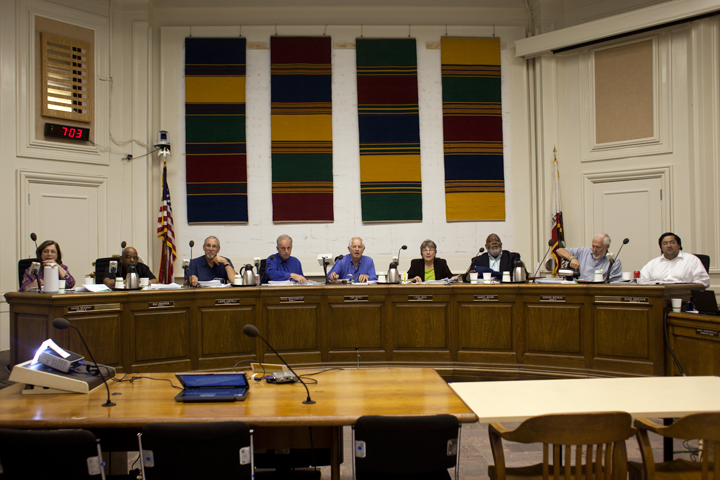
Berkeley, CA, to be the first city in the nation to ban “unhealthy items” from checkout lanes.
Berkeley is gearing up to become the first city in the nation to ban junk food from the checkout line in grocery stores.
In a unanimous vote Tuesday night, the Berkeley City Council passed the “healthy checkout” ordinance.
Come March 2021, when the measure is set to take effect, large grocery stores in the California city will be prohibited from selling food and beverages deemed unhealthy in a 3-foot radius from the checkout.
“It’s not really a ban, it’s a nudge,” co-sponsor of the ordinance council member Kate Harrison told FOX Business. “What we have discovered is that this law enforces good behavioral economics and facilitates better choices.”
The ban will eliminate items that contain more than 5 grams of added sugars or over 250 milligrams of sodium per serving. Items like chips, candy bars, sodas or other processed foods will be replaced with healthier alternatives, like pita chips, hummus, health bars and milk.
The council’s decision to move unhealthy items away from the register hinges on the duplicitous ways the food environment affects consumer choices. The city of Berkeley’s press release on the new policy cited a national study, which found that 91% of supermarkets display candy at checkout, along with 85% that sell soda and other sugary drinks by the checkout area.
Rather than remove unhealthy items entirely, they will be displaced from where customers are more likely to make impulsive purchasing selections.
“The checkout line at grocery stores has long been synonymous with kids begging mom and dad for a candy bar,” Berkeley Mayor Jesse Arreguín said in a statement. “Impulse buying at checkout contributes to high levels of sugar consumption in American diets, and we have to provide healthy alternatives to enhance public health and get a hand on epidemic levels of diabetes.”
The coronavirus pandemic has only exacerbated the threat to serious health conditions like diabetes and heart diseases. Councilwoman Harris added that “COVID-19 is killing more people of color, as well as low income communities who also suffer from diabetes and heart disease.” In efforts to reduce those risks, the Council has made the legislation a priority as it relates to the national health emergency.
While the ban goes into effect in March, there will be a nine-month ramp-up period for retailers to work with contractors to rearrange display areas.
The new measure will not harm stores, according to the Councilwoman. Profit margins on the healthier products are sometimes greater than that of the less healthy options. An apple, for example, generates five times the margin of Doritos.
“It’s good for business,” Council member Harrison said. “In fact, we think they might even make money, particularly because it aligns with consumer desires.”
It is not the first time that Berkeley has moved towards progressive health policies. In 2015, the city implemented the nation’s first soda tax on sugar-sweetened beverages. “The Healthy Checkout program is another important first for Berkeley, and a huge step forward for the health and wellbeing of Berkeley residents,” Berkeley’s Vice Mayor Sophie Hahn said in a statement.
“Healthy Checkout is a common sense measure that puts healthier foods in the ‘impulse buy’ lane, while still allowing shoppers the option to purchase less-healthy items elsewhere in the same market.”
(Fox News).